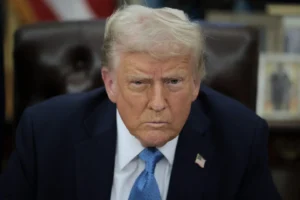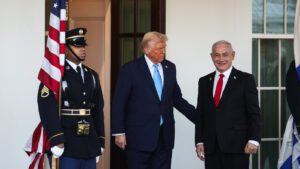The Democratic Republic of the Congo (DR Congo) has been in turmoil for years, hosting one of Africa’s longest wars. The conflict plays off the question of identity, power, and control of resources within the country, having killed thousands and recently displaced over a million people. The conflict between one of the potent rebel groups, M23, and the Congolese army has currently spread to Goma, a city of two million people.
Who are the M23?
The M23 takes its name from the March 23, 2009, peace deal that intended to end all wars in DR Congo. After originally capturing and later withdrawing from Goma in 2013, the rebel group launched another wave of rebellion against Congolese forces in 2021.
Although Rwandans deny it, United Nations (UN) experts have gathered evidence and interviewed credible witnesses confirming Rwanda’s support for the M23. Evidence shows Rwandan officers conducting war tactic training with the rebel group’s new recruits. The presence of advanced short-range air defence systems and unidentified technology sources used to jam airspace in the DR Congo could not be acquired without the financial and military support of Rwanda.
UN expert, Clémentine de Montjoye who works at the Human Rights Watch (HRW) as a Senior Researcher in the African division, has claimed that “it’s certain with the kind of military support that the M23 has received that they have been able to make such an advance [on Goma].”
Why is Rwanda involved?
Rwandan support for the M23 began following the Rwandan Genocide. The conflict began in 1994 when the Hutu-led government massacred over 800,000 Tutsis, a wealthier and significantly smaller ethnic group. Ultimately, after extensive fighting, a Tutsi rebel group (known as the Rwandan Patriotic Front) headed by present-day Rwandan President Paul Kagame took control of the country, which resulted in over a million Hutus (many of whom were war criminals) fleeing into the DR Congo.
There, some of the Hutus regrouped in an attempt to restore Hutu rule in Rwanda by killing Tutsis and launching attacks into Rwanda from the DR Congo. In response, Rwanda, now under a Tutsi government, began to retaliate by arming Congolese ethnic Tutsi civil groups in the DR Congo. One such insurgent group is the M23.
Rwanda’s representative to the UN, Ambassador James Ngango, has stated that participants of the Rwandan genocide are now a part of the armed groups,“where they now pose an existential threat to our (Rwanda’s) security and are spreading their genocidal ideology.”

Featured image: DRC residents flee as the M23 rebel group captures more territory in eastern swamps of the country, courtesy of Africa Center 2025.
What is happening in Goma?
On January 30, M23 rebels captured Goma, the capital of the North Kivu province. The Congolese city, located near the Rwandan border, is known for its mineral wealth, serving as a hub for trading, a humanitarian order for refugees fleeing from civil group conflicts, and a base for UN Peacekeeping forces.
There were about 700 civilian casualties and over 3,000 injured, twenty being peacekeepers, killed in the take over. Three peacekeepers were from Malawi, resulting in Malawi’s President Lazarus Chakwera ordering troops to withdraw from their peacekeeping mission in DR Congo.
Humanitarian organizations have also expressed concerned as thousands of displaced persons have been given a 72-hour ultimatum by M23 representatives to leave collective centers and displacement sites and return home. M23 partners have already started the process of dismantling displacement sites. The spokesperson for the United Nations Office for the Coordination of Humanitarian Affairs (OCHA), Jens Laerke, stated, “This situation leads to the loss of humanitarian infrastructure at the sites, including border facilities, health centers and cholera treatment centers, resulting in significant losses of humanitarian investments and reduced response capacities.”
A warrant has now been issued by a military court in the DR Congo’s capital for the spokesperson of M23, Corneille Nangaa. Following Goma’s fall and a brief pause in fighting for a humanitarian corridor, M23 is now advancing towards Bukavu, the capital of South Kivu, as regional African leaders call for negotiations and an immediate ceasefire.







